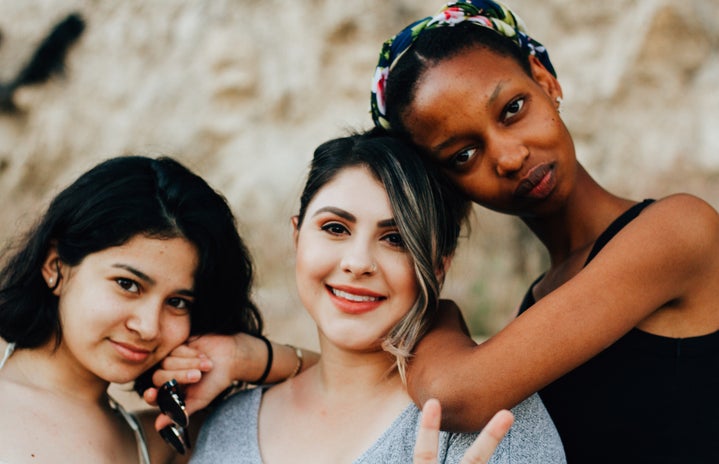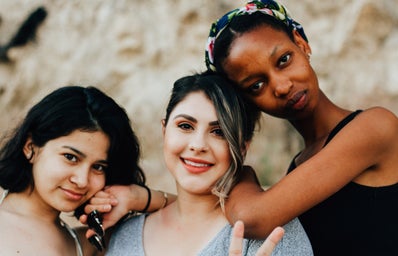Father knows best. Mother knows best. Or do they? We’ve all been there. Trying to figure out our own paths in life, wanting to make our own mistakes, when these two little voices in the backs of our minds (or on the other end of the telephone) sometimes make it more difficult to do so. When it comes to choosing a major and a career, our parents become a big part of that. Some parents take the approach of choosing our paths, others let us fly a little freer. Every girl’s experience is different.
Sticking to the Knitting Lisa Wortzel, a first-year dental student at the New Jersey Dental School, always wanted to be a dentist, and growing up around parents involved in the profession definitely influenced her decision. “My dad is a dentist and my mom works with him as a dental hygienist, so I grew up always being around the profession,” she says in an email. “I think I wanted to be a gymnast during the Olympics for a week or so but other than that, it was always a dentist!” Lisa, who loves both science and art, sees dentistry as a combination of the two fields. While Lisa’s father certainly advised her about dentistry, her mother thought she should study psychology instead. Ultimately, though, the choice was Lisa’s. Her parents were an influence in her career choice, but they didn’t force her in one direction or another. “As long as I was happy and living a life that I felt was fulfilling, my parents would have been happy.” Robert Murphy, Director of Career Services at Carnegie Mellon University, says support, like Lisa got from her parents, is one of the best ways parents can help their students choose a career that’s right for them. Murphy says parents can be most beneficial to their student “by allowing [a] student to follow an exploratory journey, to actively encourage them to explore” possible majors and careers. “You have to let them follow their values, follow their competency,” he says. Parents should remember that there’s pressure flying at us from every direction—from our university, our college, our department, and so on—and the last thing we need from them is more of it. It’s best for them to first and foremost be loving and supportive. That can be difficult, though, when parents are the ones paying the bills.
Breaking Off Jane Wu, a senior English and Professional Writing major at Carnegie Mellon University, is dealing with this situation.“We didn’t have a lot of money when I was growing up,” Jane says, so her parents had more steering force than usual when it came to first choosing a major and then choosing a career. Though her parents originally wanted her to become a doctor, Jane found in her sophomore year of high school this wasn’t the path for her, and this revelation was not well-received. “My sophomore year of high school I told my dad I didn’t want to be a doctor and he didn’t speak to me for a year,” she says. And when she found her passion for English and writing, her parents were not pleased, either. To them, Jane says, it wasn’t a way to make money. “I’ve always grown up in a household where money equals happiness or success,” she says. “It’s sometimes difficult for me to hear how other people’s parents are so supportive of whatever they want to do.” Jane, who enjoys writing fiction and dabbles in other sorts of writing, formed these interests into the idea of being a lawyer, to please her parents. “I feel like they might disown me if I don’t have a successful career they can brag about.” Jane worries that she is on the path to becoming “corporate” and “soulless.” Even so, she laughs, “I just want to live in the woods with little creatures and write stories,” but sadly this fairy tale might remain just that. “I want to live comfortably, be able to support myself,” Jane says. But at what price comes happiness? Murphy says, “Parents aren’t career counselors. Parents are parents. [In Career Services,] you have to look very deep at interests, values, and skills.” First, the student has to be interested in their career, or they’re not going to want to do it. Then, their values have to be taken into consideration—what are their top priorities and goals? Lastly, if a student doesn’t have a particular skill required for a job, it’s going to be that much more difficult for them to first develop the skill then force themselves to work in a condition that they, as a person, aren’t cut out for. Murphy says if the three don’t match up, there’s a problem. Parents can help, Murphy says, by not making judgments on career choices. It all goes back to support.
Finding Your Way Support is what Molly Rhoads, a senior biology major with chemistry and art minors at the University of Miami, got from her parents—with a little nudge here and there. Molly’s parents encouraged her to become a doctor starting when she was very young. “They would see me trying to help people, even though I was a little kid and couldn’t really do anything,” she says. “I don’t know if I could come up with wanting to be a doctor myself [then].” Molly was less than enthused about starting her biology major. “It was absolutely terrifying,” she says. “But I never gave up.” Now, after working with the underprivileged in Nicaragua as a medical volunteer this past spring break, Molly knows this is the right path for her. “I’ve never been so happy before. That’s when I knew really knew. Before, I was just like oh, this is just something I’ll do, but helping people and seeing the difference you can really make was amazing.” Molly picked up an art minor after pursuing another one of her passions, photography. If she wasn’t going to be a doctor, a pediatric cardiologist no less, she would have liked to take her art and design path more seriously. “There’s no room for being creative in those [science] classes. I thought I was losing that side of me. I wanted to be well-rounded.” Even so, Molly is happy that she studied biology. “I love what I’m doing,” she says. “I’m really happy where I am.” Though Molly was originally unsure about her parents’ advice to become a doctor, she admits that, for her at least, they did know best. “I know they were giving me advice because they know me well,” she says. “It was always my decision and they would be backing me up, but at the end of the day, they knew.” Sources: Robert Murphy, Director of Career Services, Carnegie Mellon University Molly Rhoads, student, University of Miami Lisa Wortzel, student, New Jersey Dental School Jane Wu, student, Carnegie Mellon University

